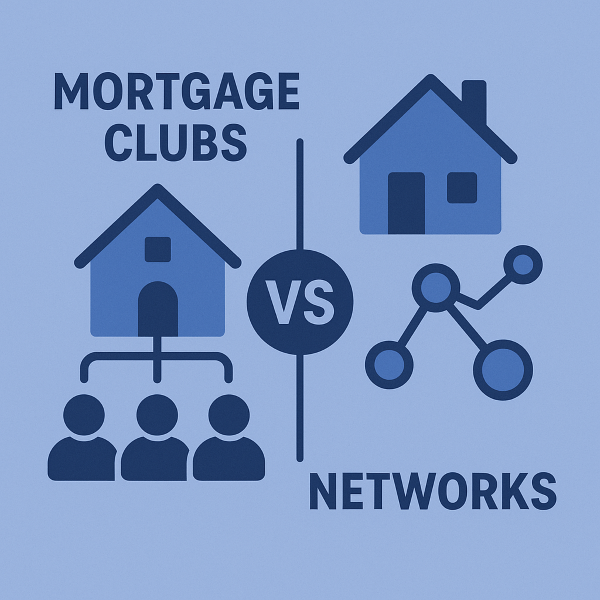Mortgage Clubs vs Networks: The Power of Choice for Brokers | Whether you’re a newly qualified mortgage adviser or an experienced broker reassessing your business model, choosing between a mortgage club and a mortgage network is a pivotal decision. Understanding the differences and how each structure supports you can have a long-term impact on your growth, earnings, and compliance responsibilities.
At Connect, we support brokers at every stage of their careers. Whether you prefer the freedom of direct authorisation (DA) or the comprehensive support of an appointed representative (AR), we aim to give you the power of choice with complete transparency.
What Is a Mortgage Club?
A mortgage club is ideal for brokers who the FCA directly authorises. It provides access to exclusive mortgage products, enhanced procuration fees, and tools to help grow your business without interfering with your day-to-day operations.
Key benefits of joining a mortgage club:
-
Retain full control of your business
-
Access to exclusive rates and enhanced procuration fees
-
Marketing, tech and CRM tools
-
Ongoing broker support without regulatory oversight
Explore our mortgage club services to learn how we help DAs scale their business while maintaining independence.
What Is a Mortgage Network?
A mortgage network supports brokers by offering a fully regulated environment. As an appointed representative (AR), you’ll be covered under the network’s FCA permissions, giving you peace of mind regarding compliance, PI insurance, training, and monitoring.
Why brokers choose mortgage networks:
-
Compliance oversight and regulatory protection
-
Access to PI insurance under the network
-
Training, case checking, and back-office support
-
Ideal for new advisers or those seeking structured support
Ready to take the next step? Join Connect’s mortgage network and access industry-leading support.
Clubs vs Networks: What’s Right for You?
| Feature | Mortgage Club (DA) | Mortgage Network (AR) |
|---|---|---|
| FCA Authorisation | Required | Not required (covered by network) |
| Business Control | Full independence | Structured under network rules |
| Compliance Support | Limited | Full support and oversight |
| Fee Earnings | Often higher | Typically lower (due to network cut) |
| Ideal For | Experienced advisers | New or growth-focused advisers |
Still unsure which route fits your goals? Visit our guide to choosing a mortgage network in the UK to compare your options in more depth.
Why Connect?
We believe in empowering mortgage professionals with a flexible framework that grows with them. Whether you’re looking to stay DA and benefit from our club or join a network for full compliance support, we tailor our services to your needs.
With Connect, you can also access:
-
Broker compliance support to keep your processes aligned with FCA expectations
-
Business development guidance to boost your revenue
-
IFA partnership models for advisers looking to expand into holistic financial advice
Let’s explore your next move together. Get in touch today for a confidential conversation about your goals.
Join Our Network
Choosing between a mortgage club and a mortgage network doesn’t need to be daunting. By understanding the benefits and obligations of each and partnering with a firm that puts your success first, you can make a confident, informed decision.
We’re here to help you find the right fit, whatever stage of the journey you’re on.
Thank you for reading our publication “Mortgage Clubs vs Networks |The Power of Choice for Brokers.” Stay “Connect“-ed for more updates soon!

